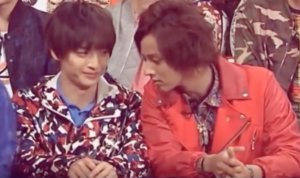Această recenzie poate conține spoilere
Grief, healing, and connection (minor spoilers)
I didn't see many comments on this aspect of the show, so I wanted to offer my experience.
While the spotlight may have been on the romance between Aoba and Sakura, for me the message of the show was grief and healing-- Sakura's grief around losing his entire sense of normal, and the grief of those around him, struggling to support and understand while recognizing how difficult it is for those who haven't lived that experience to truly empathize.
Each of us has our own lived experiences, which bring their own preconceptions, biases, privileges, and defense mechanisms to all of our interactions. It is this difference in lived experience that is harder to overcome than any language barrier, cultural barrier, or stereotype. At the same time, the process of understanding that and working to connect with others in spite of this (or maybe because of it) is what makes us human. To me, that was the message conveyed through the stories of the various characters, more than the love story and more than the idea of overcoming language barriers (which I can understand as a takeaway, but was not personally what I experienced in watching).
SPOILER
Sakura came face to face with this struggle in a unique way, when he lost a major piece of what he utilized to connect with the world (through hearing, music, and by extension sports in the way he was used to playing them) and he took several years to go through the process of grieving that loss and the loss of the life he expected to live before beginning to fully reconnect with himself and with the world--part of that through meeting Momose and part of it through revisiting his relationship with Aoba.
END SPOILER
I admit that the lived experience that I bring to my viewing is rooted in processing my own grief around coming to terms with a (in my case invisible) disability, and while I do not pretend to understand what Sakura's character experienced, I found his character's actions relatable and felt a sort of catharsis through watching his journey. Watching Sakura's character helped me in my own journey of healing, and his comment in the final episode:
SPOILER
(paraphrase)青葉の言葉をもう聞けないけど、見えるようになったのは嬉しい。
I may not be able to hear your words anymore, but I am so glad that I have become able to see them
was a strong testament to the fact that while our lived experiences may all be unique and our sense of normal may change over the course of our lives, it doesn't change the fact that the life each of us experiences is equally beautiful and full of possibility.
END SPOILER
While I cried in almost every episode, I didn't find this show tragic or heartbreaking. The writing was impressive and nuanced. While I focused a lot on Sakura's character here, I found the full cast of characters and sub-characters to be greatly relatable in their own ways. There was courage and imperfection in each of them, which made them all uniquely human.
The acting was incredible, Kawaguchi Haruna is unsurprisingly a strong lead, and Meguro Ren secures his place as Japan's next rising star. The music was perfectly timed, and Official HIGEDANdism's Subtitle is another masterpiece.
While the spotlight may have been on the romance between Aoba and Sakura, for me the message of the show was grief and healing-- Sakura's grief around losing his entire sense of normal, and the grief of those around him, struggling to support and understand while recognizing how difficult it is for those who haven't lived that experience to truly empathize.
Each of us has our own lived experiences, which bring their own preconceptions, biases, privileges, and defense mechanisms to all of our interactions. It is this difference in lived experience that is harder to overcome than any language barrier, cultural barrier, or stereotype. At the same time, the process of understanding that and working to connect with others in spite of this (or maybe because of it) is what makes us human. To me, that was the message conveyed through the stories of the various characters, more than the love story and more than the idea of overcoming language barriers (which I can understand as a takeaway, but was not personally what I experienced in watching).
SPOILER
Sakura came face to face with this struggle in a unique way, when he lost a major piece of what he utilized to connect with the world (through hearing, music, and by extension sports in the way he was used to playing them) and he took several years to go through the process of grieving that loss and the loss of the life he expected to live before beginning to fully reconnect with himself and with the world--part of that through meeting Momose and part of it through revisiting his relationship with Aoba.
END SPOILER
I admit that the lived experience that I bring to my viewing is rooted in processing my own grief around coming to terms with a (in my case invisible) disability, and while I do not pretend to understand what Sakura's character experienced, I found his character's actions relatable and felt a sort of catharsis through watching his journey. Watching Sakura's character helped me in my own journey of healing, and his comment in the final episode:
SPOILER
(paraphrase)青葉の言葉をもう聞けないけど、見えるようになったのは嬉しい。
I may not be able to hear your words anymore, but I am so glad that I have become able to see them
was a strong testament to the fact that while our lived experiences may all be unique and our sense of normal may change over the course of our lives, it doesn't change the fact that the life each of us experiences is equally beautiful and full of possibility.
END SPOILER
While I cried in almost every episode, I didn't find this show tragic or heartbreaking. The writing was impressive and nuanced. While I focused a lot on Sakura's character here, I found the full cast of characters and sub-characters to be greatly relatable in their own ways. There was courage and imperfection in each of them, which made them all uniquely human.
The acting was incredible, Kawaguchi Haruna is unsurprisingly a strong lead, and Meguro Ren secures his place as Japan's next rising star. The music was perfectly timed, and Official HIGEDANdism's Subtitle is another masterpiece.
Considerați utilă această recenzie?












